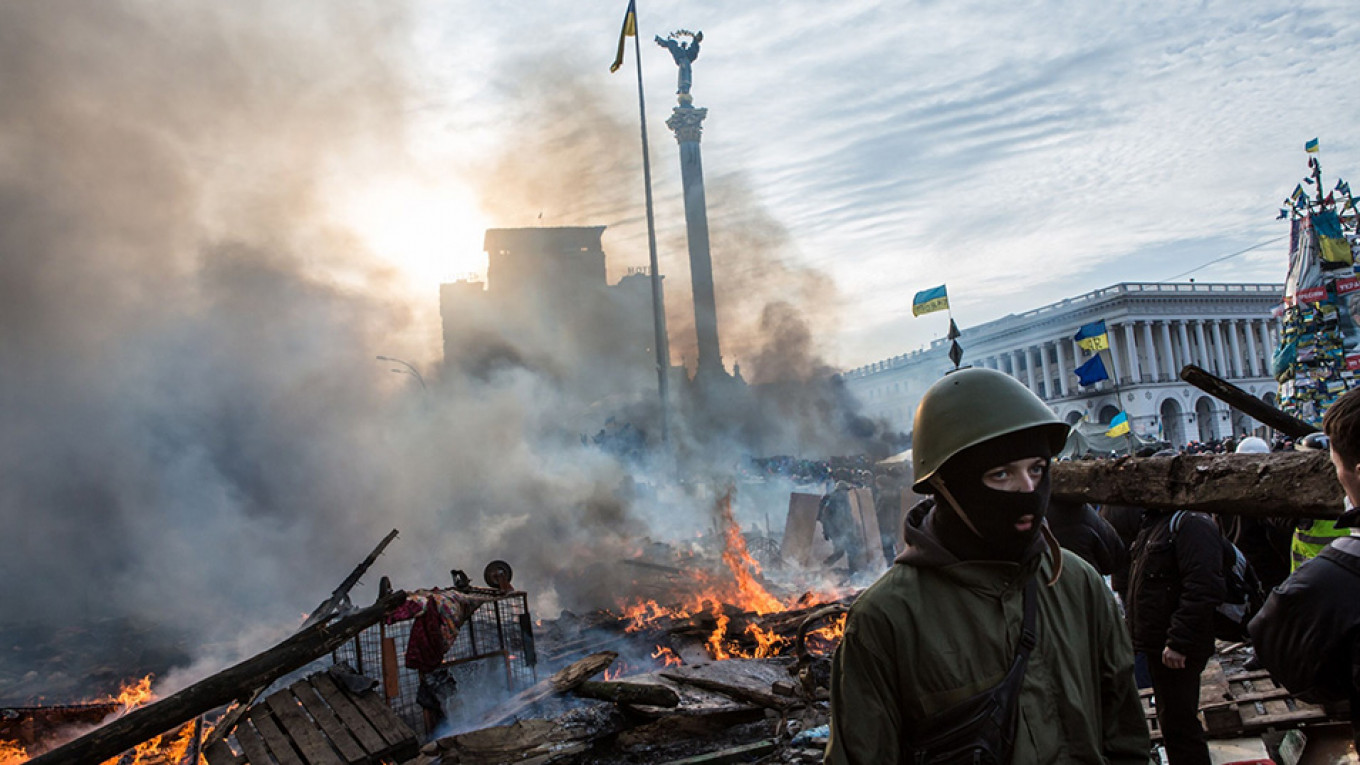
Russian efforts to boost influence over Ukraine at its neighbor’s election this month are making little headway.
Ties between the one-time allies remain at a nadir after protesters in Kiev unseated the country’s Kremlin-backed leader in 2014 and Vladimir Putin annexed Crimea before fomenting a war in which he still denies involvement. That’s left Ukraine focused on Western integration, and Russia still keen to derail it.
A firmer footing in Ukraine’s parliament would help that aim, and a Kremlin-linked businessman has revamped the Russia-friendly Opposition Platform party before the July 21 vote.
Local tycoon Viktor Medvedchuk, whose daughter counts Putin as her godfather, has been enlisted to assist, brokering a prisoner exchange last week. Cheaper energy prices are also being dangled.
The push, however, has fallen flat. Support for political forces sympathetic to Russia remains almost unchanged from five years ago, after Ukraine’s second pro-European uprising in a decade.
Disillusionment with persistent corruption has instead benefited Volodymyr Zelenskiy, a TV comic who was propelled to the presidency this spring. Pledging to maintain his nation’s pro-Western direction, his party is the runaway leader before the parliamentary election.
“Russia’s goal is simple: to regain power through their proxies, but this is hard to achieve,” Volodymyr Fesenko, director of the Penta political-research company in Kiev, said by phone. “They want to set up a ‘vanguard’ in parliament and expand their presence there.”
Putin is trying to turn up the heat on Zelenskiy, who arrived with no political experience. Russia began offering passports to residents of the war zone in Ukraine’s east days after Zelenksiy was elected, an initiative that will complicate his hopes of resolving the conflict.
Meanwhile, the information war could soon be cranked up after a Medvedchuk associate bought a national television station.
Close family, cultural and linguistic ties mean there will always be a chunk of the electorate backing pro-Kremlin politicians.
“I have many relatives in Russia and I don’t like that the rulers in Ukraine try to make enemies of us now,” said Marina, a 35-year-old from Kiev who’s expecting a baby.
But more feel differently. A May-June poll by the Rating group found that two-thirds of Ukrainians still consider Russia an aggressor, compared with just over a quarter who say the opposite.
With sympathetic voters in Crimea and the conflict zone not able to cast ballots and the majority of citizens keener on Ukraine’s long-term goals of European Union and NATO membership, support for Russian-backed parties is unlikely to budge much.
“People with a history of political loyalty will vote for this political force,” said Yuriy Yakymenko, an analyst at the Razumkov Center in Kiev. “That trumps demand for new faces, which is otherwise high among voters.”

Leave a Reply